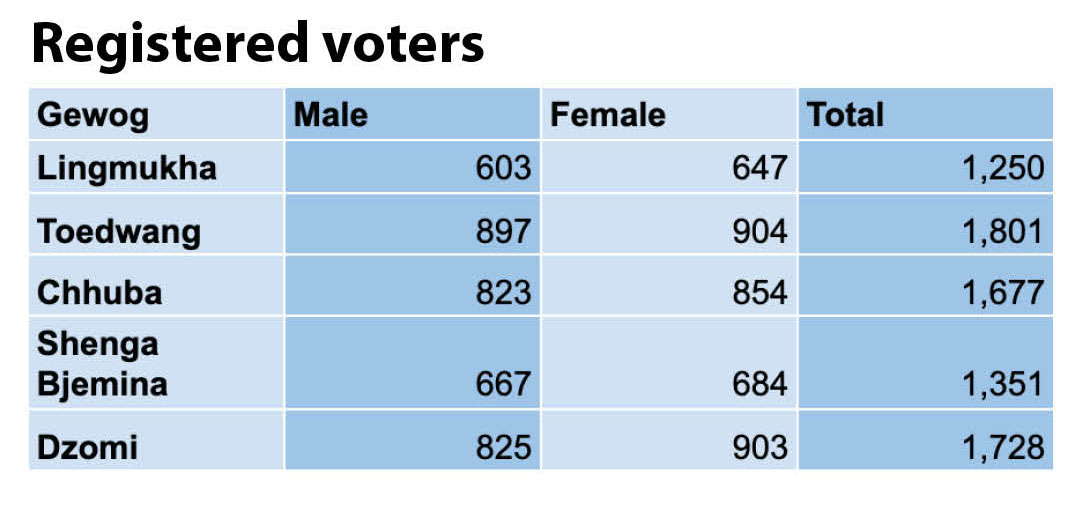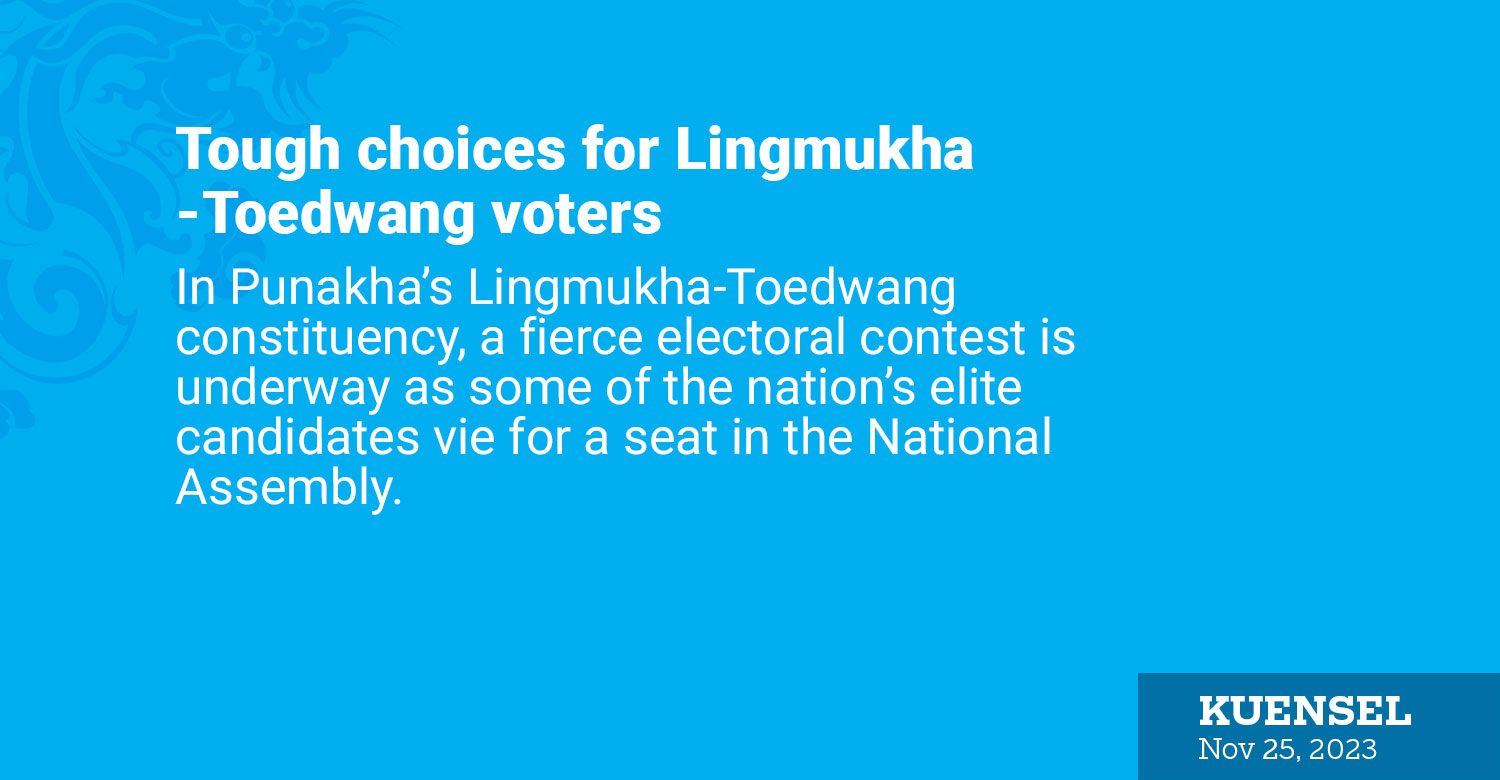Chencho Dema
In Punakha’s Lingmukha-Toedwang constituency, a fierce electoral contest is underway as some of the nation’s elite candidates vie for a seat in the National Assembly.
In a departure from the 2018 elections, voters are grappling with uncertainties regarding the fate of their preferred candidates in the upcoming general round.
Despite a diverse array of candidates, the lingering question prevails – who will secure the votes in Lingmukha-Toedwang, given their seemingly equal capabilities?

Dr Tandi Dorji, the former foreign minister, expresses a sense of concern about securing re-election in the face of formidable competition.
The seasoned 57-year-old politician, who entered politics in 2008, acknowledges the intensity of the race and the presence of capable contenders. While facing competition from PDP and Thuendrel, Dr Tandi Dorji emphasises the importance of his candidature, aiming to provide a distinctive choice for the electorate.
Namgay Wangchuk, a PDP candidate, and Sonam Wangyel Wang (PhD) of DTT share the same gewog as Dr Tandi Dorji, but Dr Tandi holds an advantage due to Sonam Wangyel Wang and Namgay Wangchuk belonging to the same chiwog.
Dr Tandi Dorji, armed with a Bachelor of Medicine and Bachelor of Surgery and an extensive academic background, served as the foreign minister after winning the 2018 elections for the Lingmukha Toedwang constituency.
Sonam Wangyel Wang, a 52-year-old Druk Thuendrel Tshogpa candidate, brings his experience as a seasoned politician since 2008.
Acknowledging the advantages and disadvantages of having multiple candidates from the same gewog, he emphasises the pivotal role of voters as the game changers. With a PhD in Natural Resource Policy and Management, Sonam Wangyel Wang has served in various capacities, including as a research professor at Korea University.
Tenzin Tshewang, 51, stands as the sole contender from the Dzomi Gewog, viewing it as a strategic advantage due to its large population.
Despite acknowledging the qualifications of all candidates, he identifies Dr Tandi Dorji as his primary rival, given his seasoned political background.
With 28 years of diverse work experience, Tenzin Tshewang aims to secure a substantial portion of the gewog’s votes.
Gyambo Sithey (PhD), 51, who worked in the health ministry for over a decade, expresses concerns about securing enough votes against seasoned contenders. Hoping to avoid receiving the fewest votes, he emphasises the importance of leaving behind a reliable legacy.
Former MP Namgay Wangchuk, 44, advocates for the significance of having multiple contenders from a gewog, providing voters with diverse options.
Despite the votes potentially being split, Namgay Wangchuk believes in the majority’s support, cautioning against underestimating the electorate.
As the Lingmukha-Toedwang constituency braces for a closely contested election, voters navigate the complexities of choosing the candidate who aligns best with their aspirations and expectations.
The Lingmukha-Toedwang constituency boasts 7,807 registered voters. Among these, 1,735 are postal voters within the country, while 29 exercise their voting rights from overseas.
The constituency is served by 10 polling stations. The dzongkhag has a total of 33,049 residents.
As the electoral landscape unfolds, the looming question arises: Will Dr Tandi Dorji sustain his political legacy, or will Namgay Wangchuk emerge victorious this time?
Alternatively, could voters express sympathy for Sonam Wangyel Wang, or will the allure of two new contenders, Tenzin Tshewang and Gyambo Sithey, shape the outcome in the general election?
The unfolding dynamics promise an intriguing spectacle as voters decide who will ultimately prevail in Lingmukha-Toedwang.


